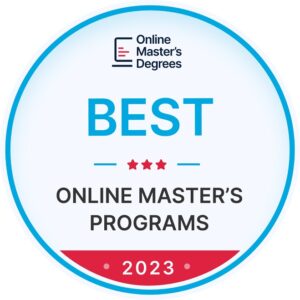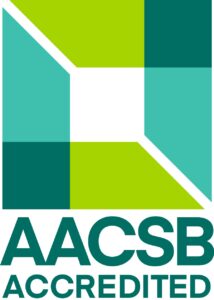Here are some actual classroom/academic issues that have arisen in recent years that prompted parents to call or ask for advice. We want to share this information with you so you will be able to answer questions and encourage your son or daughter as he/she learns the ropes at Marshall University. Our goal is for you to have enough basic understanding of policies and practices to steer your student in the right direction when he or she needs information or action.
When your student registers in the future, he or she will meet with an academic advisor in the Academic Advising Center prior to the period designated for registration. The registration dates are determined by one’s class standing (seniors register first, freshmen register last). A Schedule of Courses is available in print and online at least three weeks prior to registration. You can go online at the Registrar’s website to see a copy.
Students who need advising information should visit the Academic Advising Center, Corbly Hall 334, or call 304-696-2314. Each student is presented with an Advising Guide at Orientation that will also guide them in choosing the necessary classes.
1. Official Marshall E-mail accounts. We cannot over-emphasize how important it is for students to check their Marshall account daily. This is one of the ways advisors and departments and programs send information to students. Students can also forward their Marshall e-mail to a private account.
2. myMU. Announcements and other information are available to students in our Web portal, myMU. This is where students go to find their grades, their schedules, special University announcements, etc. Please encourage your son or daughter to make this a regular stop on the Web.
3. The Parthenon, WMUL-FM (88.1) and MU Report. In order, these are our student-run media: newspaper, radio, and television. These are excellent sources of information about events on campus as well as information about people and places.
4. Posters and signs in classroom buildings and in the Memorial Student Center. Tell your son or daughter to browse through these posters and signs on a regular basis. Sometimes programs use this means of communication to advertise special events.
However, there are absences that are excused by the University and these must be honored by all instructors. The categories for these absences are: University-sponsored Activities, including athletics; Student Illness; Illness or Death in the Immediate Family; Short-term Military Obligation; Jury Duty or Subpoena for Court Appearance; and Religious Holidays. Each of these categories is explained in more detail in the Undergraduate Catalog that is available online at the Admissions website. For these absences, the University policy states that students should be allowed to make up work missed and, where feasible, reschedule missed activities. It is the student’s responsibility to initiate these arrangements and to do so immediately after the absence (or, if possible, prior to the absence). The procedures for obtaining an excused absence are clearly described in the catalog and students should read this section carefully. If your student has any questions about the policy, he or she should contact the Academic Advising Center at 304-696-2314.
Students should be aware that studies of academic success indicate that one of the most important actions students take is to attend class.
You can find the specific information about Marshall’s recommendations on computer use and purchases at https://www.marshall.edu/it/recommendations/.
The University Bookstore does have the ISBN numbers for all books on its website for those who purchase their books elsewhere. We appreciate the scholarship money that the University Bookstore contributes to Marshall students each year.
English
Students must complete ENG 101 and then ENG 201. Students must receive a grade of “C” or better in ENG 101 in order to advance to ENG 201. Students must earn a grade of “C” or better in ENG 201 in order to graduate. Students who receive a grade of “D” in ENG 201 must repeat the course for a higher grade.
ENG 101P is required for students who have a verbal ACT score of 17 or below. This course counts for four-credit hours. Students who complete the course with a “C” or better will proceed in ENG 201.
Students with a verbal ACT score of 28-33 are encouraged to take ENG 201H. Upon completion of this class with a minimum grade of “C” or better, students will receive six hours of credit to count toward ENG 101 and 201. If a student receives a grade of “D”, the student will only receive three hours of credit toward ENG 201 and must either repeat ENG 201H or go back and take ENG 101.
Students who receive a verbal ACT score of 34 or higher, can automatically receive credit for ENG 101 and ENG 201. Students must report to the English department in order to have this credit applied to their transcript.
Students who are admitted to the Honors College will enroll in ENG 200H. Students who earn a grade of “C” or better will receive 6 hours of core composition (ENG 101 and 201), along with completion of one writing intensive requirement, one critical thinking requirement, one humanities requirement, and one multicultural requirement.
Math
Students must complete an algebra course by either taking MTH 127 or MTH 130, depending on your math ACT score. Students with a math ACT score of 21 or higher can take MTH 130 for 3 credit hours. Students with a math ACT score of 19 or 20 must take MTH 127 for 5 credit hours.
MTH 102 is required for students who have a math ACT score of 18 or less. MTH 102 is a four-credit hour course. Students who complete MTH 102 can then proceed to MTH 127.
Students who change their major to business and have already completed MTH 100, MTH 121, or MTH 121B, but have and ACT score of 18 or less will be required to take MTH 102B. MTH 102B is a one-credit hour course. Student who complete MTH 102B can then proceed to MTH 127.
A: Any student with a learning disability who wishes to receive accommodations and services must register with the Disabled Students Services Office (696-2271) or the fee-based Higher Education for Learning Problems (H.E.L.P.) Program (696-6316). These programs will review the documentation of the disability and determine which accommodations are necessary. Their staff will then provide a notice to be given to faculty members describing the required accommodation(s). It is up to the student to discuss the accommodations with his/her professors before any assignments or exams are due. Marshall faculty cooperates closely with the appropriate offices to provide accommodations.The Excused Absence policy does not recognize work as an activity to be excused. Therefore, whether work activity is excused is up to individual instructors. Students should be aware that many instructors will not consider work obligations to be excused absences.
The College of Business also offers business specific organizations and clubs. These include:
- 1. Alpha Kappa Psi – All majors; invitation only
- 2. Healthcare Executives Leaders of Marshall – Health Care Management majors
- 3. American Marketing Association – Marketing majors
- 4. Beta Alpha Psi – Accounting, Finance, MIS majors; 3.0 GPA or higher
- 5. Beta Gamma Sigma – All majors; invitation only
- 6. Dean’s Student Advisory Council – All majors
- 7. Delta Sigma Pi – All majors
- 8. Collegiate Entrepreneurs’ Organization – All majors
- 9. Management Information Systems Club – MIS majors; others welcome
- 10. Society for Human Resource Management – All majors
- 11. Society of Human Resource Management – All majors
- Of course, students should not try to fill every moment of the day outside class with clubs and activities. But, students who are active and involved on campus are more likely to persist and succeed in college. The key is balance.
The LCOB has exchange agreements with several schools outside the country: Catholic University of Lyon in France; Buckinghamshire College just outside of London, England; and Auckland University of Technology in Auckland, New Zealand. Students interested in any of these programs apply directly in the Academic Advising Center.
For more information about Marshall’s study abroad opportunities, visit the Office of Study Abroad webpage.
Suspension would, however, occur only in the most extreme cases. Usually, students who do not do well the first semester end up with less than a 2.0 GPA but their performance is not bad enough to warrant suspension. These students are placed on academic probation. Probation is a period of restricted enrollment supervised by the associate dean of the student’s college. Students on probation are put on academic improvement plans that specify the goals, actions and resources for each. Students on probation must make a 2.0 GPA each semester.
The probation and suspension policies are not intended to be punitive; they are designed to increase retention by keeping students on track for graduation. Otherwise, students might linger indefinitely, taking classes but not making progress towards graduation (which requires a minimum of a 2.0 GPA).
You can ask your son or daughter, but there is no way to check on this until grades are awarded. Many faculty members do not take attendance; they believe it is the student’s responsibility to come to class or not. Other faculty members have very strict attendance policies and penalize those who violate the policy. Encourage your son or daughter to read those course syllabi closely and to adhere to the attendance policies. Students who attend class make higher grades—it’s as simple as that. UNI/HON 101 instructors emphasize this point with freshmen.
Marshall does not mail grades unless a student makes a special request. Instead, grades are in the student’s records online. Because this information is password protected by the student, parents will have to find out about the grades through the student. Grades are usually available online within 2-3 days after the end of final exams.
If you have any questions about academic policies and practices at the College of Business, contact the Academic Advising Center at 304-696-2314 or visit the office at Corbly Hall 107.














